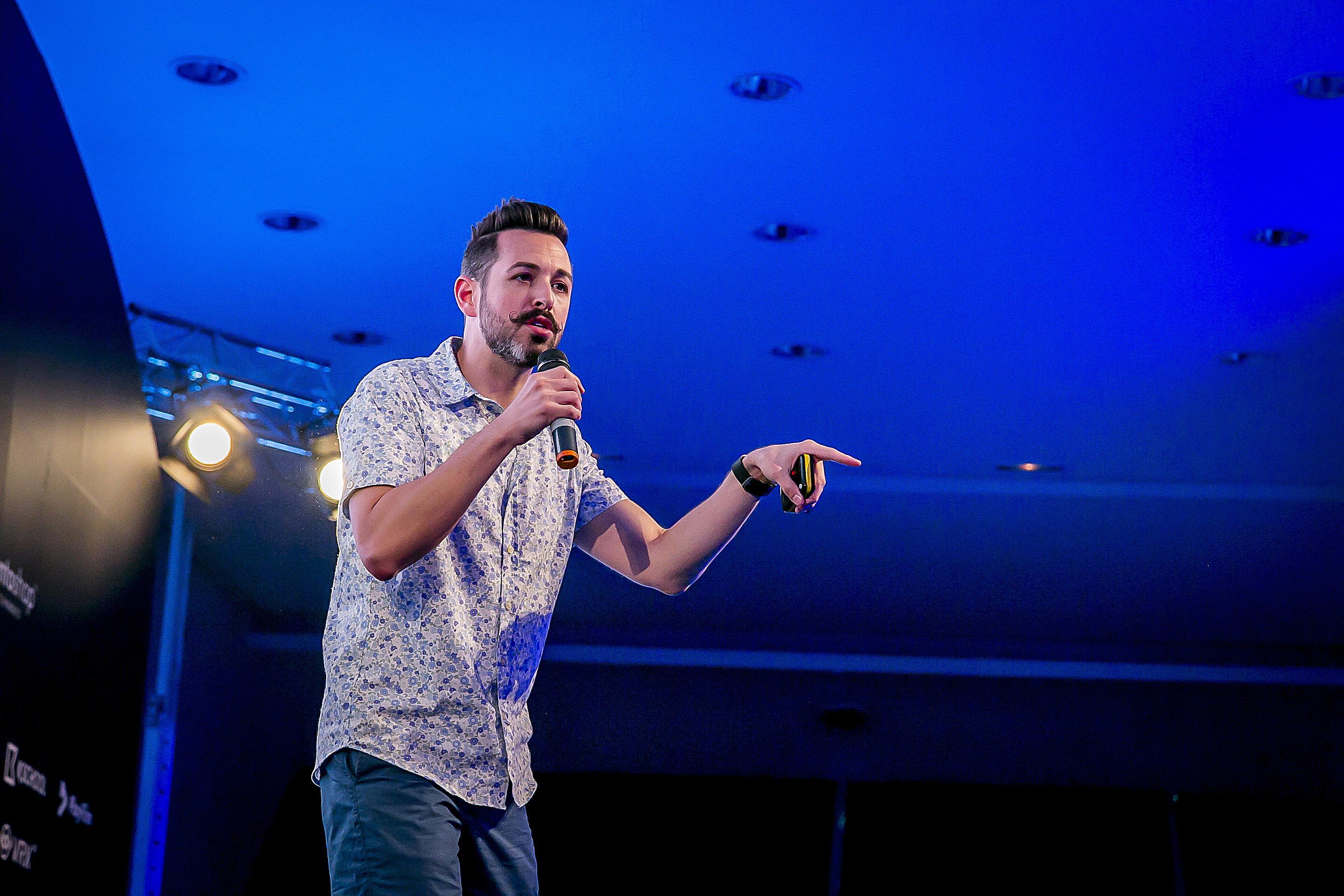
Rand Fishkin speaking at The Inbounder Global Conference 2016
He doesn't know it, but Rand Fishkin is somehow the "culprit" of The Inbounder creation.
In fact, if he did not ask me to organize a meetup with other SEOs when visiting me in Valencia two years ago, I probably would not have had that last push, which led me to create a small and experimental conference on digital marketing, and that now - two years later - it is making its first world tour.
Everybody in the search and web marketing industry knows Rand because of his almost infinite energy in educating marketers about SEO, his yellow shoes when talking in conferences all around the world, for the tools he helped to create and - with the help of many wonderful people - for the SEO community he built around Moz, the SAAS company he founded.
However, I may pretend to tell that I know also the non-public facet of Rand, and he is surely generous and somehow hyperactive as he looks publicly, but he is also a man, who defends as much as he can the values in which he believes, curious and - despite a certain and acceptable grade of stubbornness - Rand is one of the few I know in digital marketing able to recognize his mistakes.
Moreover, Rand Fishkin is one of those persons, with whom is always a pleasure having a good conversation. Here below you can understand why.
Rand Fishkin, the entrepreneur
Gianluca
A couple of months ago, you participated in Silicon Valley’s Secret, an episode of the Mostly Human internet series by Laurie Segall for CNN Go.
In the interview, you talked about the depression you suffered in the past, a mental health issue that is tragically common in the startup and technology industry.
Then, a few days ago, I read a short article – Twitter employee complains about being “broke” on a $160,000 salary, and he’s not lying and I could not but thinking that both problems are somehow related.
Maybe it is my European background, but I don’t see the Silicon Valley model viable in a middle-long term, because:
- it may lead to a unicorn bubble;
- it is creating – despite the big salaries - a new version of working class made by developers and hi-tech workers;
- it is breeding a generation of chronically depressed entrepreneurs, which is not good both humanly and economically;
- It is causing an inflation of products and services, which only a few are disruptive.
Don’t you think that this Silicon Valley model - that we can synthesize into making the creativity of entrepreneurs being so depending on the Insatiable avidity of venture capital firms to find the next unicorn as quickly as possible - is broken?
If it so, what alternatives can be found or what change to the existing model can be done?
Rand
I'm not sure that the Silicon Valley startup model is broken.
For the top 20-30% of venture investors, it does make sense to put massive amounts of capital into a portfolio of projects, hoping that 1 or 2 return 5-10X the entire fund.
There's an argument to be made that the bottom half of venture funds don't perform well enough to stay in existence, but the challenge is that funds take 10-15 years (sometimes more) to show their full performance, so it's very hard for LPs (Limited Partners - the endowments and pension funds who put money into venture capital) to punish or reward performance in the short term.
What I think is broken is how the tech startup world has come to believe that venture funded startups are the best and most desirable path.
The media is a big part of how that bias is created: television shows and movies, articles in Techcrunch and the NYTimes, amplification on social media and in industry press constantly recognizes and rewards fundraising.
When I raised $18 million dollars in Moz's second round, I got more attention and congratulations than I've ever received before or since. It was the "pinnacle" of startup world recognition. That's messed up.
This "venture-first" thinking biases many entrepreneurs to believe that they need to raise money, that they're not a "real startup" without it, that pursuing top-tier VCs is like trying to get into the most elite colleges, and that success is about following this venture-modeled path.
In fact, we'd probably be far better off in a startup world where venture capital was an outlier, an interesting but rarely pursued option. It only makes sense for a small number of startups, and no one should take pride in raising VC because raising that money is more akin to taking out a bank loan (and no one, to my knowledge, celebrates those) than to create a great product or company.
I think if we can start to celebrate the right things (great companies, great products, people who treat others wonderfully even in competitive endeavors, companies that hire diverse people, that pay equitably, that treat employees fairly), we'll get to a better, healthier place.
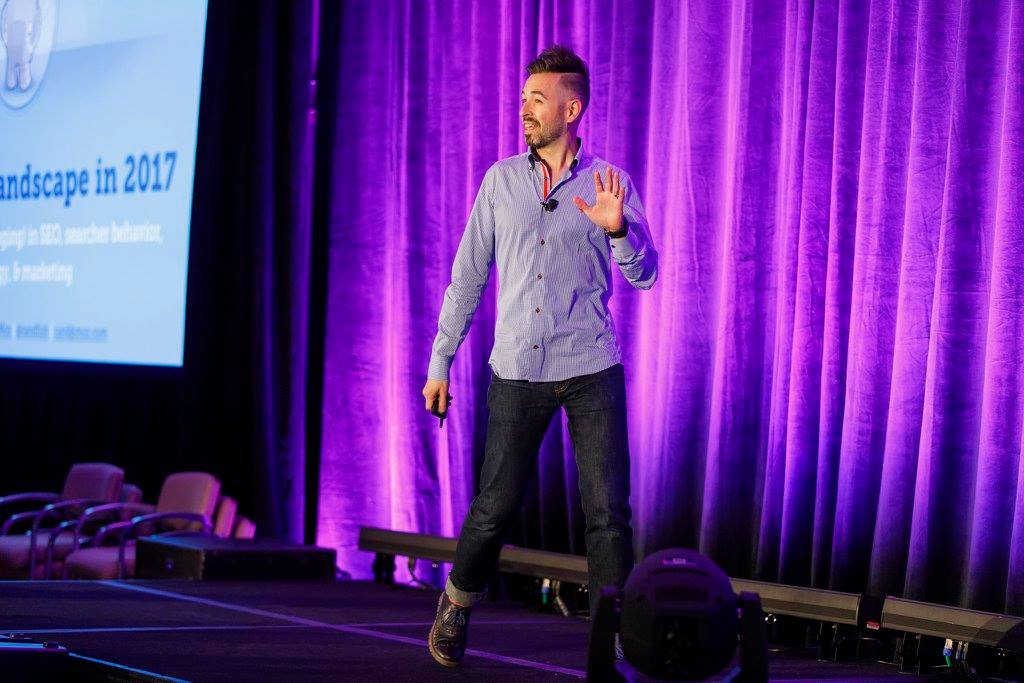
Rand speaking at MozCon Local
Gianluca
Have you ever fantasized to what would have been of Moz if you have had decided to go forward the bootstrap way, and not the investors’ one?
Rand
Ha! Indeed I have. Especially lately.
Don't get me wrong. I love my investors.
I think Brad Feld and Michelle Goldberg (from Foundry and Ignition, respectively) are two of the best people in the field. They are supportive. They truly care about entrepreneurs. They build personal relationships and they offer help when times are good and when they're tough.
But the venture model is a frustrating one.
Case in point: Moz grew ~11% in 2016 to $42.5 million in annual revenue. It became profitable in the latter half of the year.
It significantly improved product quality. If it were a privately owned business or one with only angel investors, we'd be celebrating those accomplishments. Instead, we're bemoaning a lack of growth and talking at the board about risky moves that have a chance to boost it.
That's because, when you're VC-backed, you need to find ways to get huge returns for your investors or die trying (I mean "die" figuratively, i.e. kill the company, not any people).
The model is not "grow at a slow, steady, healthy pace and build a solid, profitable company."
The model is "grow at a breakneck pace to take over a market and hopefully become a natural monopoly so as to be valued at a high multiple for potential acquirers or the public markets in an IPO."
The odds are slim (70% of VC-backed companies don't return any money to investors -- they "die" or are sold for parts). The demands are intense.
And so of course, I dream of a world where Moz didn't raise money, perhaps didn't make some of its acquisitions, missed out on some opportunities, but was also vastly more cost-conscious and focused on profitability and sustainability. We might not be as big or have as much revenue, but it certainly could be an interesting alternative path.
One thing I'll say for myself, though: I'm glad I raised money for Moz. If I hadn't, I'd have always regretted it, and always been wondering what the "real startup" world was like. Now that I've done it once, I don't think I'd do it for my next company, but it may still end up being the right move for Moz (fingers crossed).
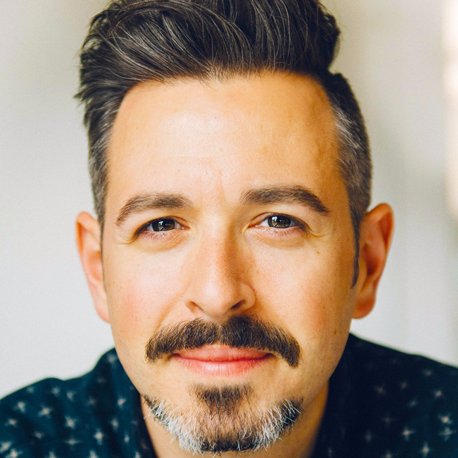 Gianluca
Gianluca
Last summer Moz took a bold decision and decided to turn back on focusing only on SEO.
That decision, as we all know, wasn’t an easy one, particularly from a human resources side.
However, right now it seems that economically it was the right decision to take, as the same Moz’s results seem to show and – as a curious side note – the disappearance of your famous mustache proves too.
Now that Moz is 100% back on SEO, what can you can you anticipate about the renewed tools or 100% new features Moz will present to its subscribers in the next future?
Rand
Yeah, that was a shit experience.
Here's to hoping I never have to be part of an organization that does that again.
I get that the model we're in (the aforementioned venture-backed startup mode), means that we are supposed to take big risks, invest heavily, and then cut back if it doesn't work out. But I just don't have the stomach or the heart for it. I'm someone who's willing to sacrifice growth to lower risk exposure.
As far as Moz's SEO investments; at the end of this year, you'll see a lot of those payoff.
It's not a lot of wholly "new" features, but rather a re-focus on the fundamentals.
We think Moz needs to be the best in the world at keyword research, rankings, links, site crawl, and on-page optimization (as well as reporting and data quality).
We have a plan for each of those, and teams working to execute.
Now it's just a matter of whether and when they can deliver.
I've got more confidence than I have in the past, but I always want to be realistic -- that mission (being the best at each of those, when there are so many strong competitors compared to years past) is incredibly hard.

Rand speaking at MozCon 2016
Rand the SEO
Gianluca
Search have changed radically in the last 12 months or so, and not always its changes has represented a positive news for websites relying on SEO as its main source of organic traffic.
I have a personal case somehow proving this.
A client of mine in the tourism niche was and is still ranking in the top 2 for “money-keywords” like “Resorts in [location]”, “Hotel in [location] et al.
However, when I look at the traffic year over year, I can see a 50%+ drop in sessions from Google Search, because since less than a year Google started presenting first a box, which is a mix of the Local Search box and Hotel Finder, pushing almost under the folder the organic search.
On the other hand, though, for the same website I started seeing increasing traffic thanks to Featured Snippets optimization – or optimization for ranking in #0.
Does this mean, especially in the most competitive niches where Google itself is a competitor, that SEO must focus less on transactional keywords and more in attacking the top of the funnel? What is your opinion?
Rand
I think SEO has always had this sort of shifting target -- Google makes big changes and SEOs must follow the traffic opportunities.
Typically, new features and new types of results close down some traffic channels but open up others (to your point around the hotel boxes and the featured snippets).
I don't think there's one big, universal tactic that will always work (like "attack the top of the funnel"), but rather, in each sector and for each site, different strategies that play to the search opportunities and the organizational strengths.
The job of a great SEO is to recognize those shifts, know where to deploy resources, and have the influence to make that happen before competitors can react.
Gianluca
Another classic trending topic in the last 12 months has been Machine Learning.
Moreover, if we look at the About Us page of Google.com, the presence of the word “Machine Learning” grazes the keyword stuffing with its presence.
However, albeit being Google quite transparent in saying how much it uses Machine Learning in Natural Language, Translations or Image/Voice recognition, it is still somehow vague when it comes to Search.
We know it uses it in RankBrain, as well it used it before in Panda. And we know – at least this is the official Google statement – that it is not using it for determining the Rankings.
Maybe we should trust the Googlers… but I’d like to know your opinion and your previews about the use Google may do of Machine Learning in the different phases of its algorithm.
Rand
Machine learning at Google has been around a good few years, and it's clearly a fundamental part of how the search quality team approaches information retrieval problems now.
I think the biggest thing it changes on the marketing end of SEO is to re-order the optimization process.
Previously, we had particular inputs that we knew could influence rankings (keyword placement, site structure, internal links, external links, anchor text, etc).
Now, I think we have to start with the output, i.e. how do we deliver a great experience to the searcher such that they will prefer our site in the SERPs over everyone else, and engage with our content and our solution to their search query at rates higher than anyone else?
If you start SEO by answering that question and delivering a great solution there, you're putting yourself in the best possible position to benefit from an ML-model that learns off of queries and clicks.
You'll still need to hit all the classic inputs -- links, keywords, etc., but the order of operations is reversed.
I think there's a lot of businesses and a good number of SEOs who don't yet approach the problem this way, and they're likely to get beaten by those who do.
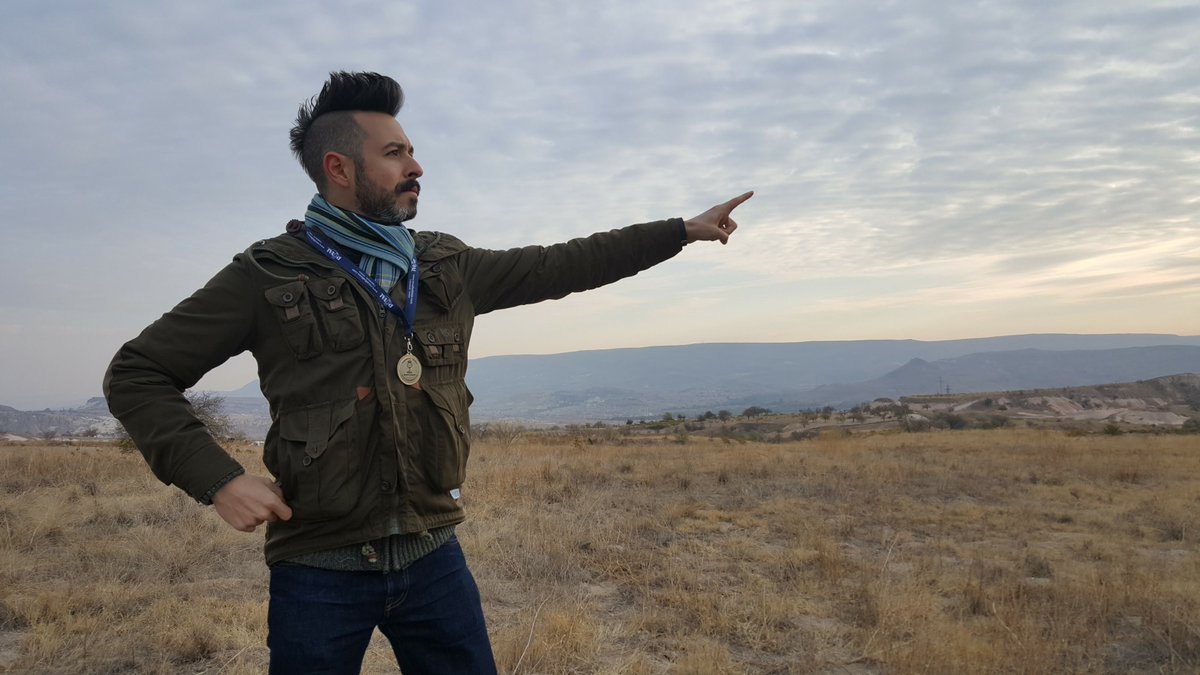
Rand in Turkey - Credit Geraldine DeRuiter
Rand the feminist
Gianluca
In your Twitter bio, we can read “Moz founder, author, feminist, husband to @everywhereist, Techstars & @backstage_cap investor”.
Anyone knowing you even only superficially knows that the "feminist" in your bio is not just a pose, and how much you fight for offering women in tech the same visibility usually reserved to men.
Here at The Inbounder, we are of the same opinion and, for instance, if we look at all the speakers of the four World Tour events, we can see an almost 50/50 presence of women and men as keynotes.
Why do you think that it is still so hard and somehow it is still so criticized this desire of equality in the Search and Digital Marketing industry, which is supposed to be one of the most “modern” nowadays?
Rand
Nice, easy question, eh? :-)
First off, let me just say that as a man, and a white (well, Jewish, but usually-white-privileged dude) man, it's awkward and problematic for me to be the one saying "here's what women need," and "here's what we need to do as an industry to promote women."
I'd much rather listen to women's experiences and then help amplify and promote those than to try to assume I know what's best.
That said, I'll do my best to articulate some of the deepest problems I've heard women discuss and seen women experience, and share some of the unfair advantages I've observed from being a man.
I think, first off, that gender bias is often socialized from early experiences in a field/industry/country/culture.
So, for example, in search marketing, the first few dozen conferences and events I attended from 2004-2008 had 80-90% male speakers.
At the time, I wasn't particularly conscious of it and didn't really notice. But I DID believe, very quickly, that I could be one of those speakers.
So I pitched for spots, and I wrote on my blog in such a way that event organizers would notice me, and, not surprisingly, I got picked to speak quite a bit.
Over a decade, I became quite a good speaker, and now have far more invitations than what I can accept.
What if I were a woman? Would I have seen 80%+ men speakers and thought "this isn't for people like me?" Would I have been comfortable going out to bars and parties, to hotel rooms and private functions by myself to network? Would I have had to worry massively more about how I looked and how I presented myself and whether I was getting treated differently? Would I have had to worry about guys hitting on me in uncomfortable ways when my goal was merely to build my professional relationships?
The answer to all these questions is a resounding "Yes. And it would have sucked."
As a white man, I accrue all these invisible benefits to my career -- the leaders in the field look like me.
They share my skin tone, my language, my accent, my gender, my wardrobe (well, excluding the yellow shoes).
I get a massive leg up just by being who I am and looking the way I do, and it's totally unfair.
Recognizing that, and hearing all the experiences that women (and people of color, and people with disabilities, and people who don't speak English as their first language -- like you Gianluca!) have gone through in this field, I realized I couldn't just coast on my unearned privilege.
If I wanted to look myself in the mirror and have any pride in my career or my accomplishments, I had to invest in creating a more fair world, even if it's just in our little corner of search marketing.
So, I'm working hard to get more women speakers at events, to promote the work of women entrepreneurs and founders, to invest consciously in diverse people and companies (like Geraldine and my recent investment in Backstage Capital), and to amplify the voices of those who are under-represented.
I wrote a bunch more about this here: Why I Believe in Intentional Efforts to Increase Diversity.
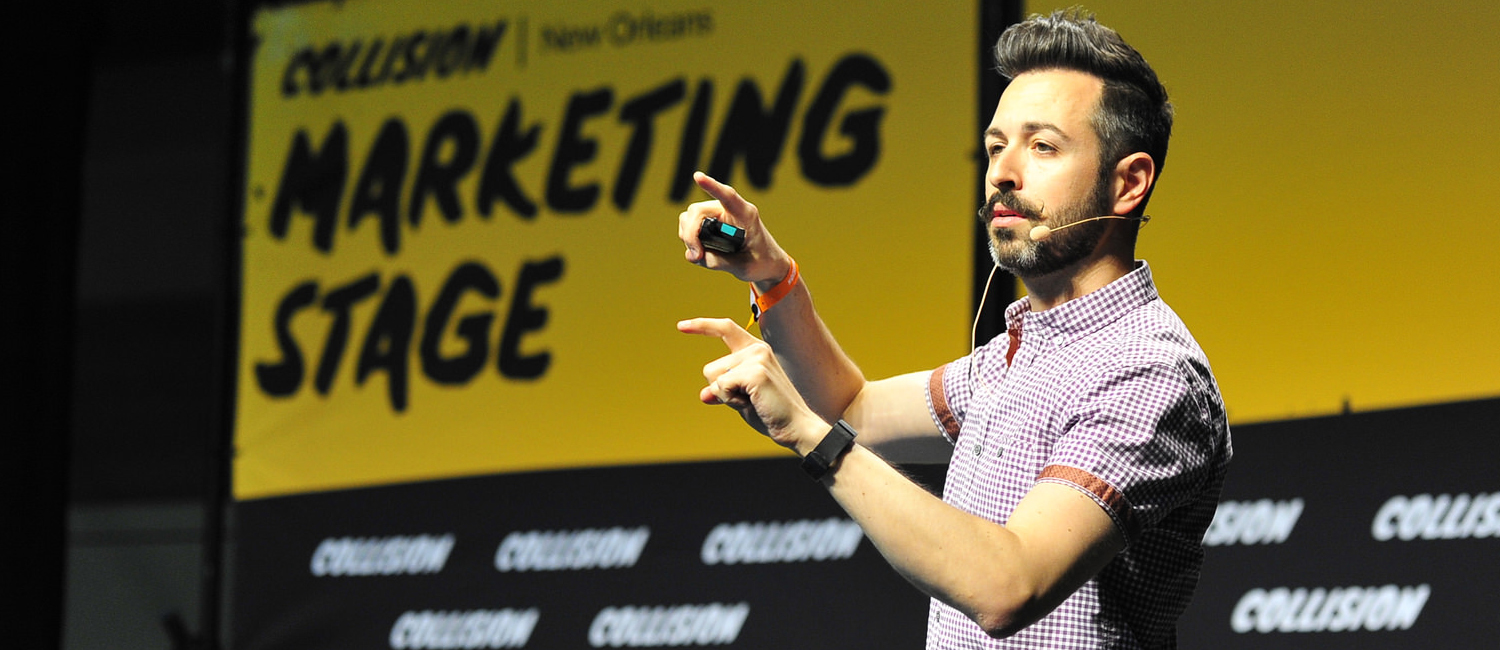
Rand speaking at Collision Marketing
Gianluca
Again, a question about women in tech.
One of the biggest difficulties I have suffered was that sometimes were the same women I try to invite speaking telling me that they prefer not to expose themselves.
This is surprising and sad at the same time as if they were afraid to be visible because… I don’t know for what reason why.
What would you like to tell the women SEOs or digital marketers to have the courage to stand out and show the great they are without any fear?
Rand
There's no way I'm going to encourage women who have concerns about their privacy or their exposure to criticism or career risk to have "courage" and start speaking or being more visible.
In my opinion, that's attacking entirely the wrong side of the problem.
The issue is not women's courage, but the environment we've all created that demands that courage.
It doesn't take nearly the same courage or risk exposure for a man to speak or be visible in our field -- that's unfair, unequal, and, frankly, bullshit.
If we're going to talk about how to encourage more women to become speakers, become bloggers, podcasters, writers, influencers, amplifiers, etc, we need to first address the environment we're creating and whether it's welcoming, supportive, and fair.
I don't think we're there -- not by a long shot. Let's work on fixing those structural problems before we try to ask for women to do more.
Rand and The Inbounder
In Valencia, hard to shake the feeling that aliens parked some spaceships downtown & the city's just playing it cool pic.twitter.com/i6bIThv9zy
— Rand Fishkin (@randfish) May 21, 2016
You have been speaking at The Inbounder since its very experimental beginnings in 2015 and, then, last year in Valencia in its first “Global edition”.
What memories do you have of those past editions, and what do you think that does The Inbounder a conference that people should go?
Rand
Well, obviously, I love the diversity.
That's not just in terms of gender balance in speakers, but diversity in all its forms.
The Inbounder brings together marketers of different stripes and backgrounds, who come from different cultures and countries, who speak different languages and optimize for different channels.
Even just talking to folks, who work on Google.es vs. Google.it vs. Google.com and Google.co.uk exposed me to a lot of different tactics and problems about which I wasn't previously savvy.
I also loved the care and thoughtfulness put into the event's venue and experience. Few conferences have that attention to detail that made the Valencia Inbounder so special. I can't wait to go back :-)
Rand Fishkin will speak at The Inbounder New York next May 22nd.
Do not miss the opportunity to hear him talking about how to achieve success in digital marketing choosing the right channel and experiments.
